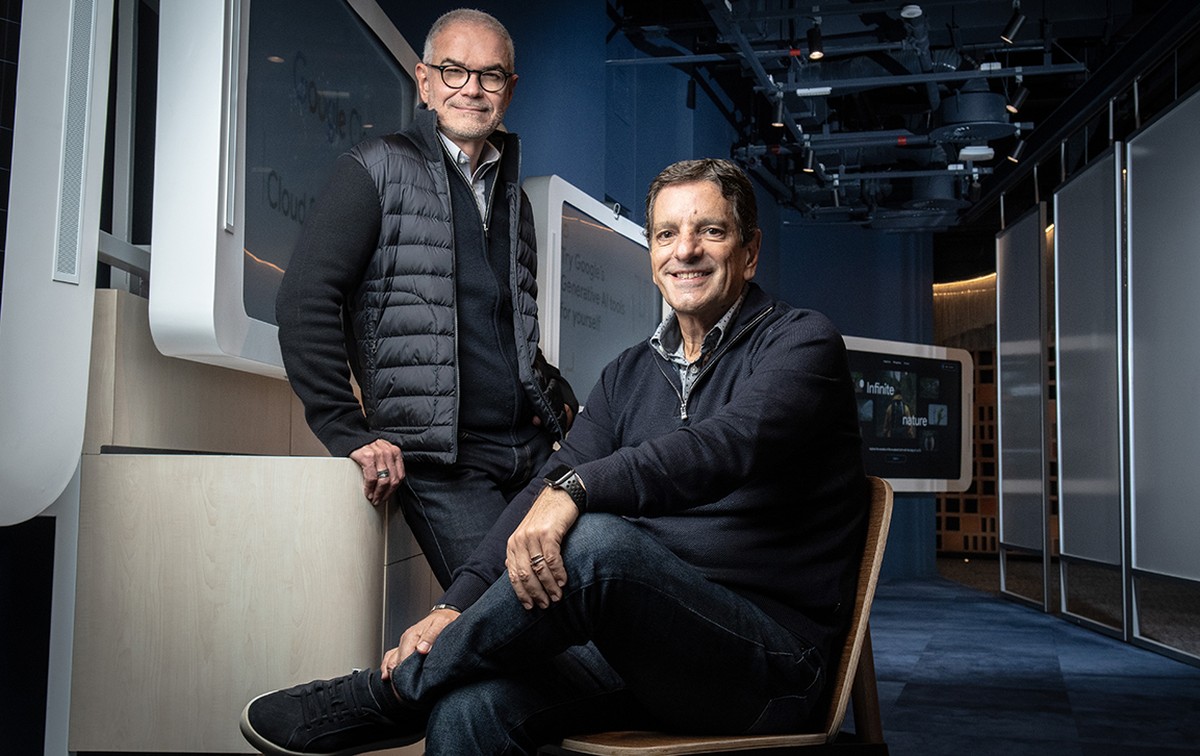Google wants to make the cloud rain. Earlier this week in São Paulo, the company inaugurated Cloud Space, a hub for innovation and technology co-creation. It is the eighth facility of its kind worldwide and the first in Latin America, with no plans for another in the region. The space occupies an entire floor of Google Cloud’s headquarters. It features an architectural design inspired by “flying rivers,” the atmospheric currents that transport billions of tonnes of water from the Amazon to other parts of Brazil, which is vital for rainfall. Meeting rooms are named after Latin American water formations, such as Lake Villarrica in Chile and Salto Ángel in Venezuela, while the cafeteria fittingly carries the name “Chuva” (Portuguese for “Rain”).
The idea was first discussed two years ago and is part of Google’s broader investment strategy to strengthen its cloud computing business in Latin America and establish Brazil as a regional hub. The company launched its first cloud region in the country in 2017—a cluster of data centers and infrastructure resources—and has since invested in connectivity through long-distance submarine cables.
With Cloud Space, activities that once required clients to travel to Sunnyvale, California, can now be carried out locally. The goal is to create an environment where Latin American companies can work directly with experts, including international specialists, to co-develop technologies and tailor projects to a more mature market phase.
“Three years ago, companies struggled to see returns on investment. Now, we see senior executives and boards far more aware of technology’s potential for business,” says Eduardo López, president of Google Cloud for Latin America.
Cloud services revenue at Alphabet, Google’s parent company, has been climbing rapidly, reaching $13.6 billion in the second quarter—a 32.6% jump over the same period in 2023. The demand for cloud and artificial intelligence has been so strong that Alphabet has raised its infrastructure investment forecast from $75 billion to $85 billion through 2025. Its fiercest competitors remain AWS and Microsoft.
Brazil is one of the world’s hottest cloud markets. It generated $34.2 billion last year and is projected to reach $120.1 billion by 2030, growing at an annual rate of 22.4%, according to Grand View Research, a U.S. consulting and market research firm. The country already accounts for 4.5% of the global cloud market and boasts the fastest growth in Latin America.
“Capital use is high. We’ve noticed this shift particularly in recent months,” adds Ricardo Fernandes, head of Google Cloud in Brazil.
Part of this momentum can be credited to artificial intelligence. As applications become more robust and consistent, more companies are willing to invest in long-term projects with measurable impact. “Two or three years ago, much of what we saw in artificial intelligence resembled a science fair project. That’s fine in school, but in business, the metrics have to be clear,” says Mr. Fernandes.
According to Google, several Brazilian companies have already adopted AI integrated with the cloud. The Casas Bahia Group, for example, cut product return rates by 10% and boosted e-commerce sales conversions by 8% after automating product description registration. Banco Mercantil increased the volume of phone calls reviewed by its internal team by 120% after implementing an AI system to monitor customer service quality. GPA expanded the use of a sales forecasting model to improve inventory management.
AI is also enabling functions that once seemed unimaginable. Sentiment analysis is one example, applied to interactions between humans and bots. When someone responds to a collection call and tells the robot they will not pay a debt, AI can detect—based on tone of voice and other signals—whether the refusal is definitive or whether the customer intends to pay but cannot at the moment. In another case, companies managing high volumes of lawsuits have begun using cloud-based AI to review documents, consult case law, and assist lawyers in resolving cases more efficiently.
In April, Google announced it would train 1 million people in AI and cloud computing in Brazil through partnerships with educational institutions and courses on digital platforms. The initiative, however, goes beyond workforce training. “Everyone needs to learn how to communicate better and interact with technology,” says Mr. López.

